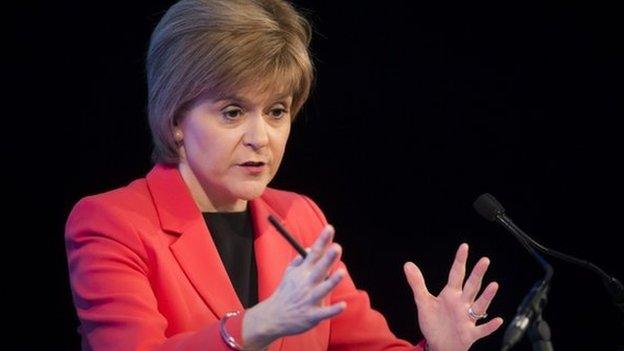Election 2015: Why all the fuss about the SNP?
- Published
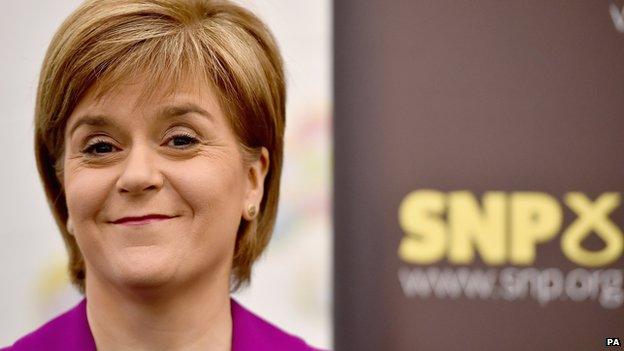
Nicola Sturgeon has been SNP leader since November
Much is being made of the SNP and the role it could play in the next Parliament. Here's a brief guide to the party and the role it could play after 7 May.
What is the SNP?
The SNP (Scottish National Party) is a political party which stands candidates in Scotland. Nicola Sturgeon has been its leader since November, when Alex Salmond stood down following the independence referendum.
The party has a majority in the Scottish Parliament and runs the Scottish government. It had six seats at Westminster at the end of the last Parliament.
That's not many. Why so much interest?
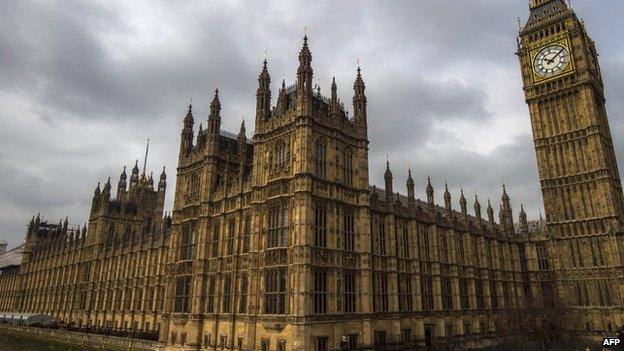
There could be many more SNP MPs at Westminster after 7 May, polls suggest
The main reason for the focus on the SNP at the moment is because of their high poll ratings. A number of surveys have suggested the party is on course to increase its representation at Westminster, with one indicating it could take more than 40 of Labour's seats in Scotland at the coming election.
There are only 59 MPs for Scotland, so many of Scotland's MPs could be SNP after the election.
The rise in support for the party comes on the back of last year's independence referendum.
Scotland voted No to leaving the United Kingdom, but SNP membership has risen dramatically since the vote. That is in part due to the fact that many people became politically engaged during the campaign and have stayed involved since.
Can I vote for them?
If you are registered to vote in a Scottish constituency, yes.
If you are registered somewhere else, no.
So why should people in England and Wales care?
Polls are consistently suggesting no party will have enough seats to govern alone after the election, so it is likely they will have to build alliances with others to get their policies passed.
In a hung parliament, an SNP bloc with a number of MPs could be a key player in post-election negotiations. Some people have suggested the party could hold the balance of power after 7 May.
Some options have been ruled out. Ms Sturgeon says she won't do any sort of deal to keep the Conservatives in power. She also says her party won't do a formal deal with Labour unless Ed Miliband drops his support for renewing Trident nuclear weapons, which are based in Scotland. Mr Miliband has ruled out a coalition deal - like the one between the Conservatives and the Lib Dems - with the SNP. But it is still possible a minority Labour government could be supported by the SNP.
Why are Labour talking about them?
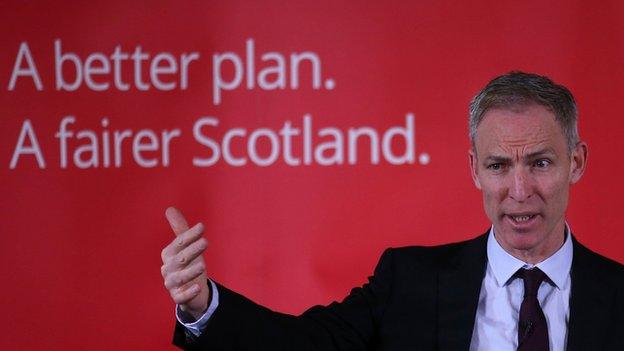
Scottish Labour leader Jim Murphy has said the biggest party will form a government after the election
Labour wants to retain as many seats in Scotland as possible. Labour leader Ed Mliband has said for every seat the SNP wins at Westminster, the more likely a Conservative government becomes. Scottish Labour leader Jim Murphy says that historical precedent shows the biggest party forms the government. If Labour wins fewer seats than the Tories, they argue, that could stop Labour from assuming power.
The SNP disputes this. It says that because it will never support the Tories, although there may be fewer Labour MPs in Scotland, they will still be anti-Conservative MPs who can stop David Cameron becoming prime minister.
As you can probably tell from what the SNP and Labour are saying, the Conservatives are not particularly popular in Scotland. At the last election, they returned one member of parliament.
Why are the Conservatives talking about them?
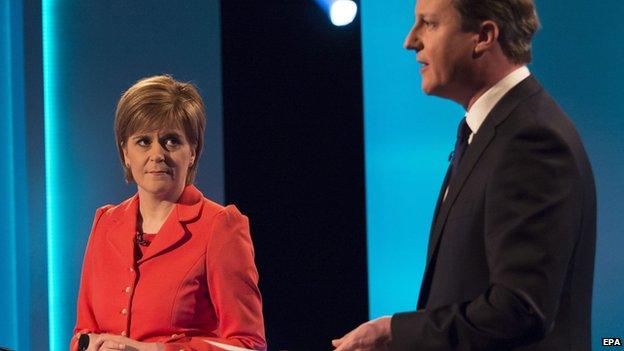
David Cameron has criticised Ed Miliband for not ruling out a post-election deal with the SNP
The Conservatives are warning that Labour cannot govern alone and they will need to do a deal with the SNP to stay in power.
Chief Whip Michael Gove says this will mean Mr Miliband and his party are forced to the left. David Cameron has said it is "despicable" that Mr Miliband has not ruled out any sort of deal with the SNP.
However, a strong SNP showing in Scotland could mean the Tories are the biggest party. Some Labour politicians have suggested the Conservatives want the SNP to do well to weaken Labour's hand.
What does the SNP say?
The SNP says it will be a progressive force at Westminster and has pledged to reform the system for everyone in the UK, not just Scots. But the party is also clear that it will fight for what is sees as Scotland's interests, including more powers for the Scottish parliament.
SNP leader Nicola Sturgeon has also identified the renewal of the Trident missile system as a "red line issue" for her party.
The party remains committed to independence. That has led to suggestions from some that they would use their influence at Westminster to further that cause rather than governing in the national interest.
So what part could the SNP play after the election?
It all depends on the result and how the numbers of MPs stack up.
The two most likely options are, firstly, the SNP is part of the opposition to a Conservative or Labour-led government as has been the case over recent decades, or secondly, they do some sort of deal with Labour where its MPs vote on an case-by-case basis.
If the latter happens the question is how much influence they might have - a minority Labour government could be forced to rely on their support. But because the SNP has made clear it will not support the Conservatives, it might also be forced to allow a Labour government to remain in power no matter what it does.
- Published7 April 2015
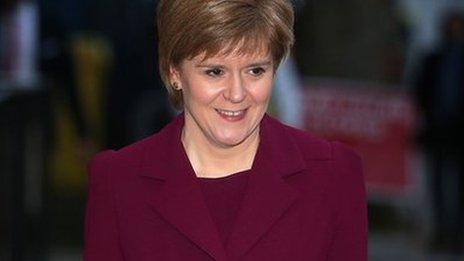
- Published28 March 2015
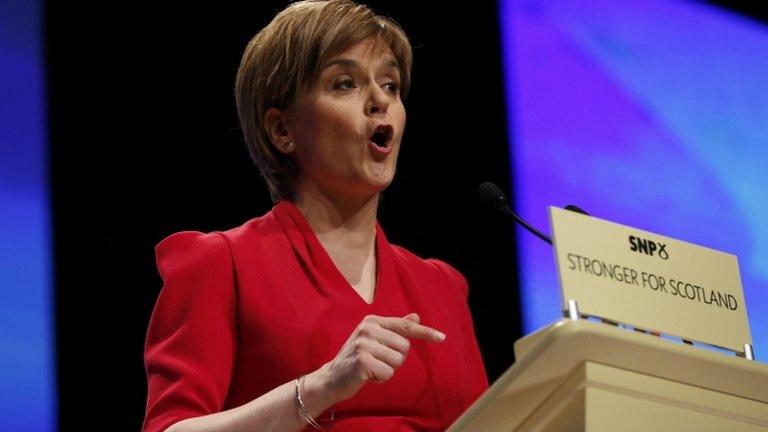
- Published16 March 2015
